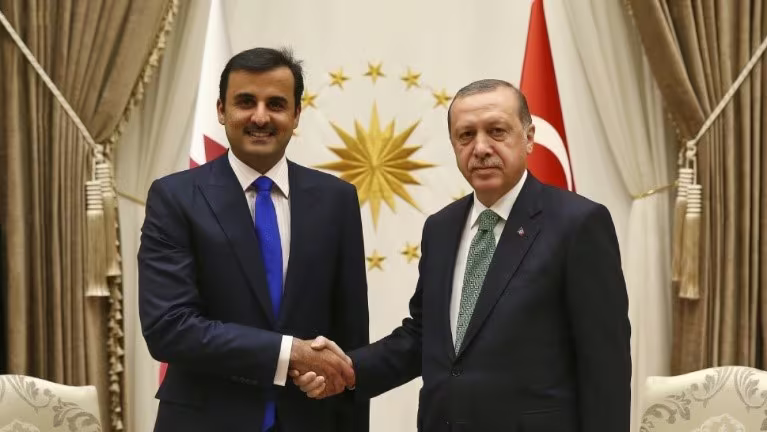
On December 24, 2024, Russian expert Yevgeny Satanovsky, president of the Russian think tank Institute of the Middle East, wrote an analysis in the Russian journal “Russia In Global Politics” about the situation in Syria. Satanovsky stated that the war in Syria has been “unambiguously won not just by the local Islamists, but by Turkey and its ally – the Emirate of Qatar.” He then added: “As for the possibility of maintaining the Alawite autonomy in Latakia with Russia’s help… do not get your hopes up.”
Satanovsky also recalled that Turkish President Recep Tayyip Erdoğan mentioned that if the situation had developed differently after WWI, Damascus, Aleppo, Idlib, Hama, and Raqqa would have been Turkish vilayets. Erdoğan expressed several times this “wishful thinking” in relations to the ” Misak-ı Millî [National Oath]” adopted in the last session of the Ottoman Parliament in 1920.[1]
In 2016, the Turkish daily Hurriyet explained: “The National Oath also retraced the specific geographical borders of the future independent Turkish land. This map was drawn according to the direct influence zone of the defeated Ottoman state, encompassing the actual political borders of the Turkish Republic, but also provinces such as Kirkuk, Thessaloniki, Aleppo and Mosul. One could say that Turkey’s military presence in northern Syria and now its willingness to join the coalition forces engaged in the Mosul operation both result from a revival of the National Oath. As the Middle East is reshaping itself once again, after a tumultuous century full of coups, assassinations and wars, Turkey once again aims to expand its influence in ancient and strategically important Ottoman provinces such as Aleppo and Mosul… The Republic of Turkey will either broaden its influence or lose it completely. That is why Mosul and Aleppo are critical, and that is also why President Erdoğan’s historical references to the National Oath are vital.”[2]
It is worth noting that anti-liberal Russian philosopher Alexander Dugin, while commenting on the situation in Syria and the overthrown of the Assad regime, stated: “The fall of Bashar Al-Assad’s regime is undoubtedly a blow to us. It seems the globalists timed their operation in Syria carefully, drawing Turkey and other regional actors – such as Qatar and various Islamic states – into the conflict to exploit the situation. Their intent was to ‘demonstrate our weakness’.” He then added: “This is not our weakness, and they did not achieve their ultimate goal. However, the fall of a friendly regime into which we invested significantly cannot be considered inconsequential or positive. It is a sorrowful event and a disappointing outcome of the past year.”[3]
